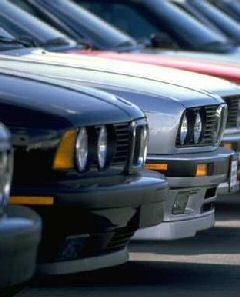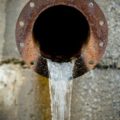
The American desire for easy parking is having a disastrous effect on the environment, say Purdue University researchers. From suburban driveways to the sprawling lots that spring up around big retailers, this growing land-use trend plays a key role in heating up urban areas and adding to water pollution, says their new study.
The researchers surveyed the total area devoted to parking in a typical midsize Midwestern county and found that parking spaces outnumbered resident families 11-to-1. Incredibly, the total parking area was larger than 1,000 football fields. “Even I was surprised by these numbers,” said Bryan Pijanowski, who led the study in Purdue’s home county of Tippecanoe. “I can’t help but wonder: Do we need this much parking space?”
Parking lots accumulate a lot of pollutants – oil, grease, heavy metals and sediment – that cannot be absorbed by the impervious surface. Rain then flushes these contaminants into rivers and lakes. Tippecanoe County parking lots turn out about 1,000 pounds of heavy metal runoff annually.
The researchers note that Americans are paving an increasing percentage of land each year for cars and trucks. They suggest that a different approach to development planning could mitigate the environmental costs associated with parking areas. Citing Europe, where cities were planned prior to automobiles, they note that many locations are typically within walking distance. “People can help by first realizing that our land is not unlimited and that we need to use it prudently,” concluded the researchers.
Related articles:
Woody Girth, Not Length, Makes For Healthy Streams
Gloomy Prognosis For Amphibians
Road De-Icing Threatens U.S. Aquatic Habitats
Concrete Jungle A Blooming Miracle For Plants








Comments are closed.